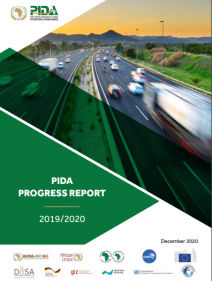Infrastructure is a bedrock for development in Africa. Sound infrastructure is a major contributor to economic growth, poverty reduction and attainment of the sustainable development goals (SDGs) adopted by all United Nations member states. It is a fundamental catalyst for increased regional trade, regional integration and linkages between African countries. Infrastructure also plays a pivotal role in the achievement of Agenda 2063, Africa’s blueprint for transforming Africa into the global powerhouse of the future, and the operationalisation of the Africa Continental Free Trade Area (AfCFTA). Trends in urbanisation and increasing populations continue to generate increased demand for quality and affordable infrastructure in Africa. Despite this, the continent continues to suffer from a huge infrastructure gap that threatens the achievement of social and other broader economic goals. The African Development Bank (AfDB) estimates that the continent suffers a shortfall in infrastructure investment of up to US$ 108 billion annually. This huge deficit threatens the achievement of development goals such as the SDGs, Agenda 2063 and AfCFTA goals, and deprives communities of essential services as well as opportunities for socio-economic development. Because of infrastructure’s critical role in development, the African Union Development Agency (AUDANEPAD) was mandated to coordinate the planning, resource mobilisation and roll-out of infrastructure on the continent. In pursuing this mandate, AUDA-NEPAD works closely with the individual states, the African Union Commission (AUC), Regional Economic Communities (RECs), AfDB, UN Economic Commission for Africa (UNECA), Pan African Institutions, Development Partners and other relevant stakeholders that play a pivotal role in infrastructure development.
Share this:
Release Date:
28 janvier, 2021
© United Nations Economic Commission for Africa

